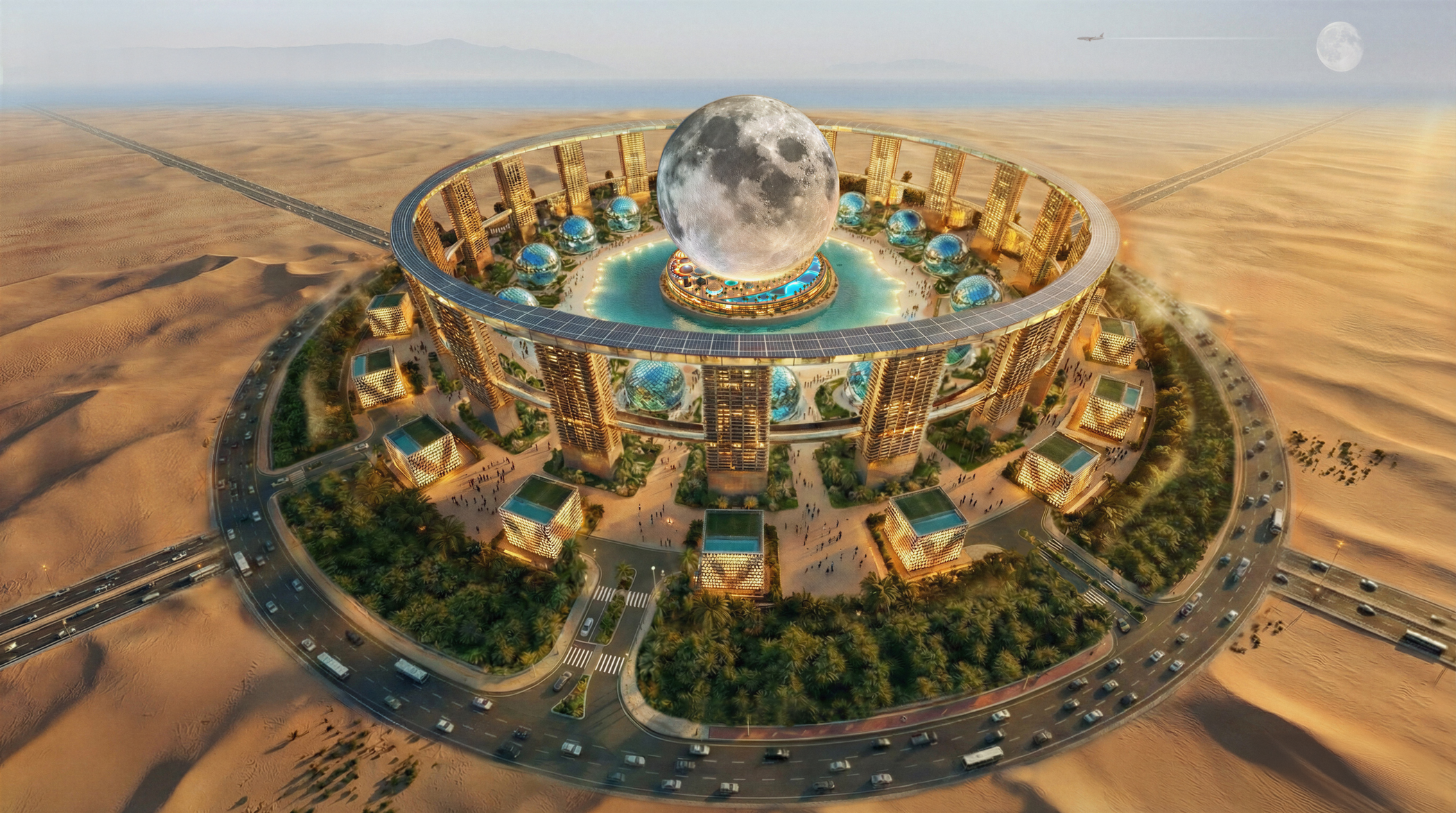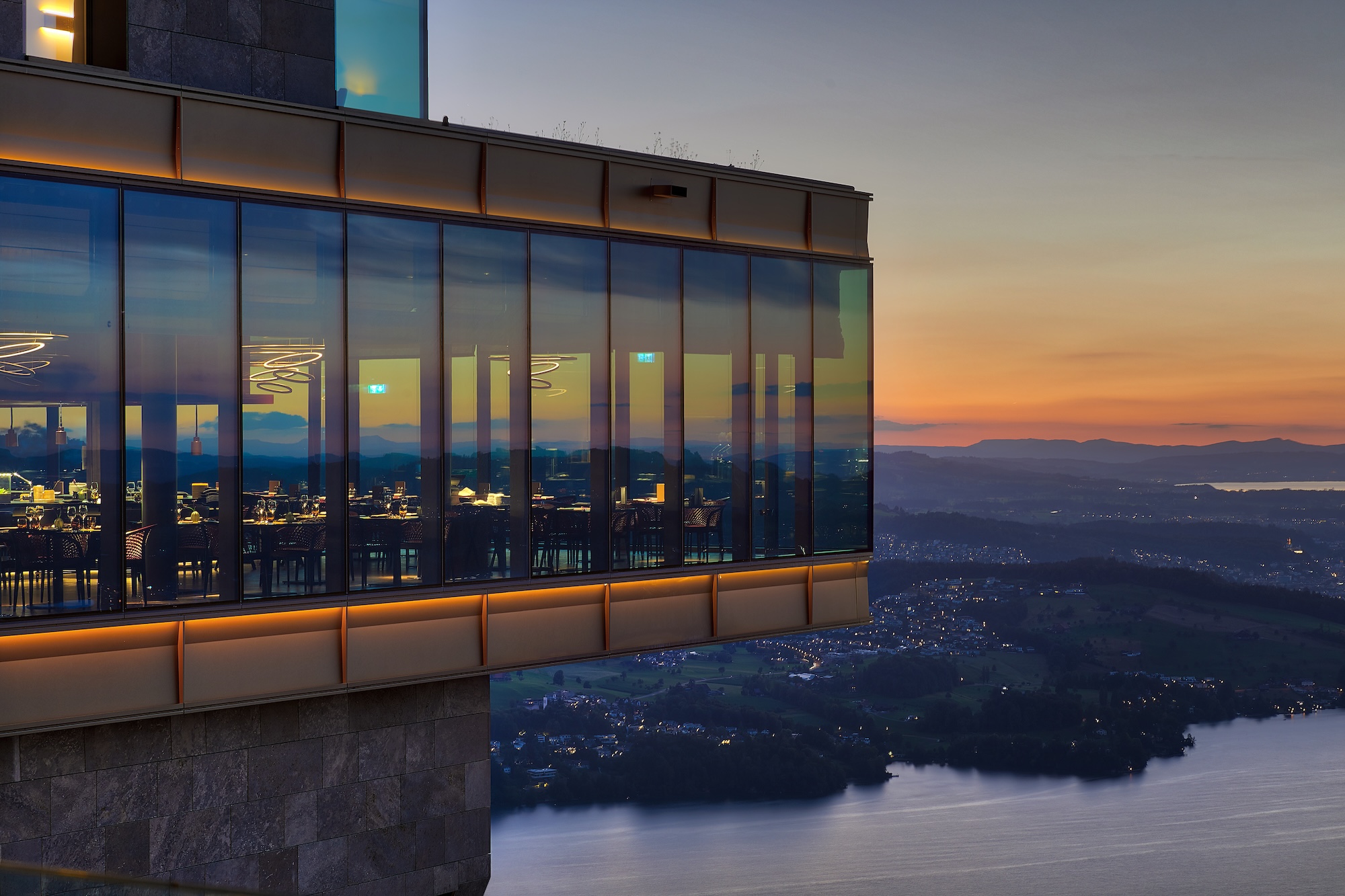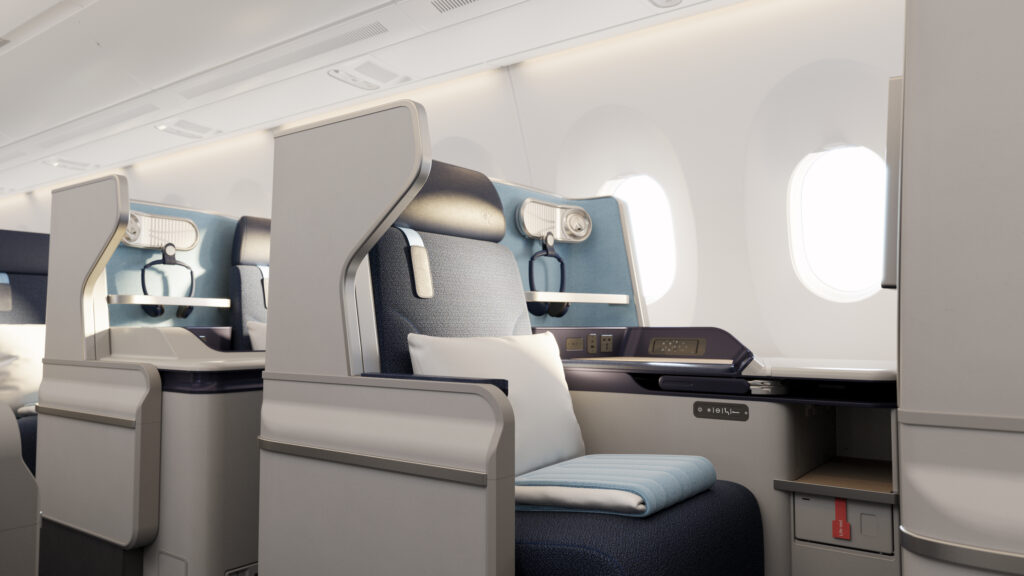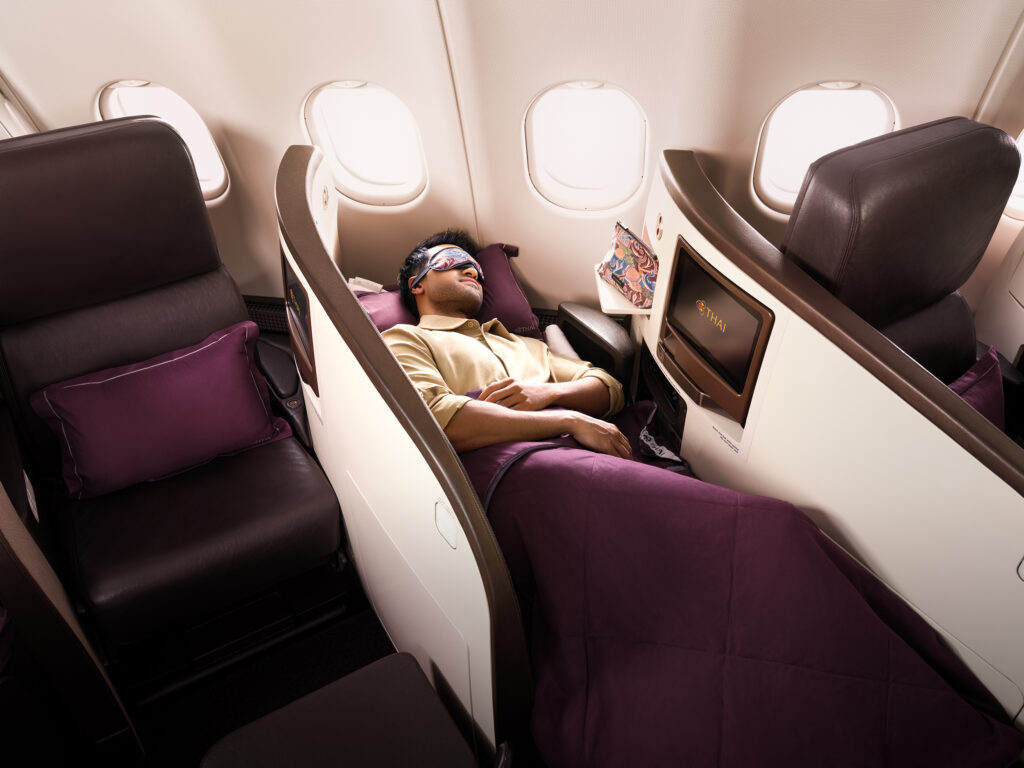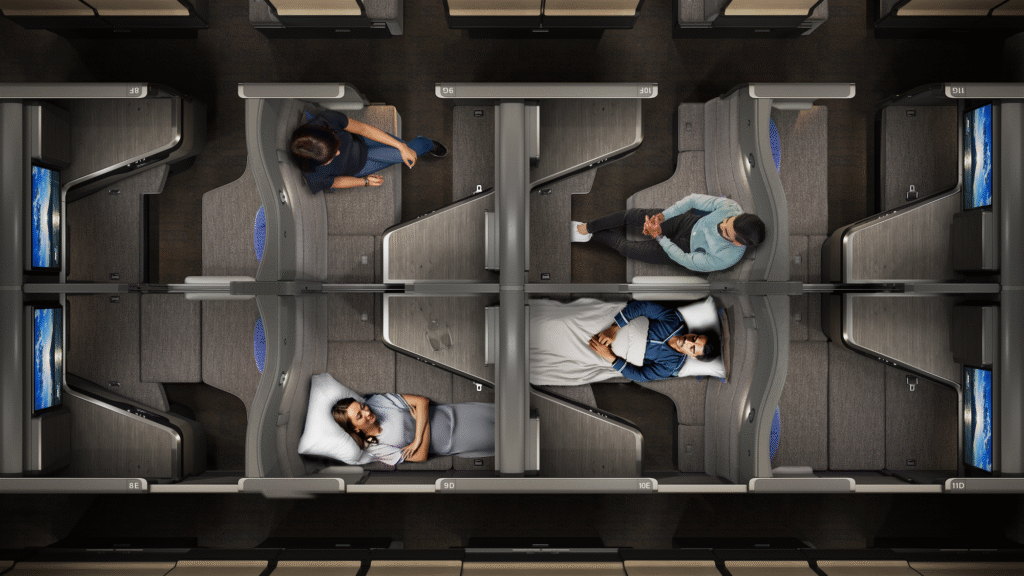Maya business class concept seat fights jetlag
The futuristic Maya seat concept features anti-jet lag lighting and a huge cinematic screen. Olivia Palamountain reports
New business class seat concept, Maya, integrates both physical and digital technologies for an "immersive experience".
A collaboration between Collins Aerospace and Panasonic Avionics Corporation, the thinking behind the innovative seat design is that by providing increased control over the seating environment, passengers can truly relax.
Maya's "Arise" system intelligently optimises comfort by automatically adjusting the seat in response to body pressure, temperature and active vibration caused by the aircraft.
Q-Tech advanced sound-dampening technology reduces background noise for a quieter flight, while Hypergamut lighting technology creates an improved lighting environment that harmonises with a passenger’s circadian rhythms.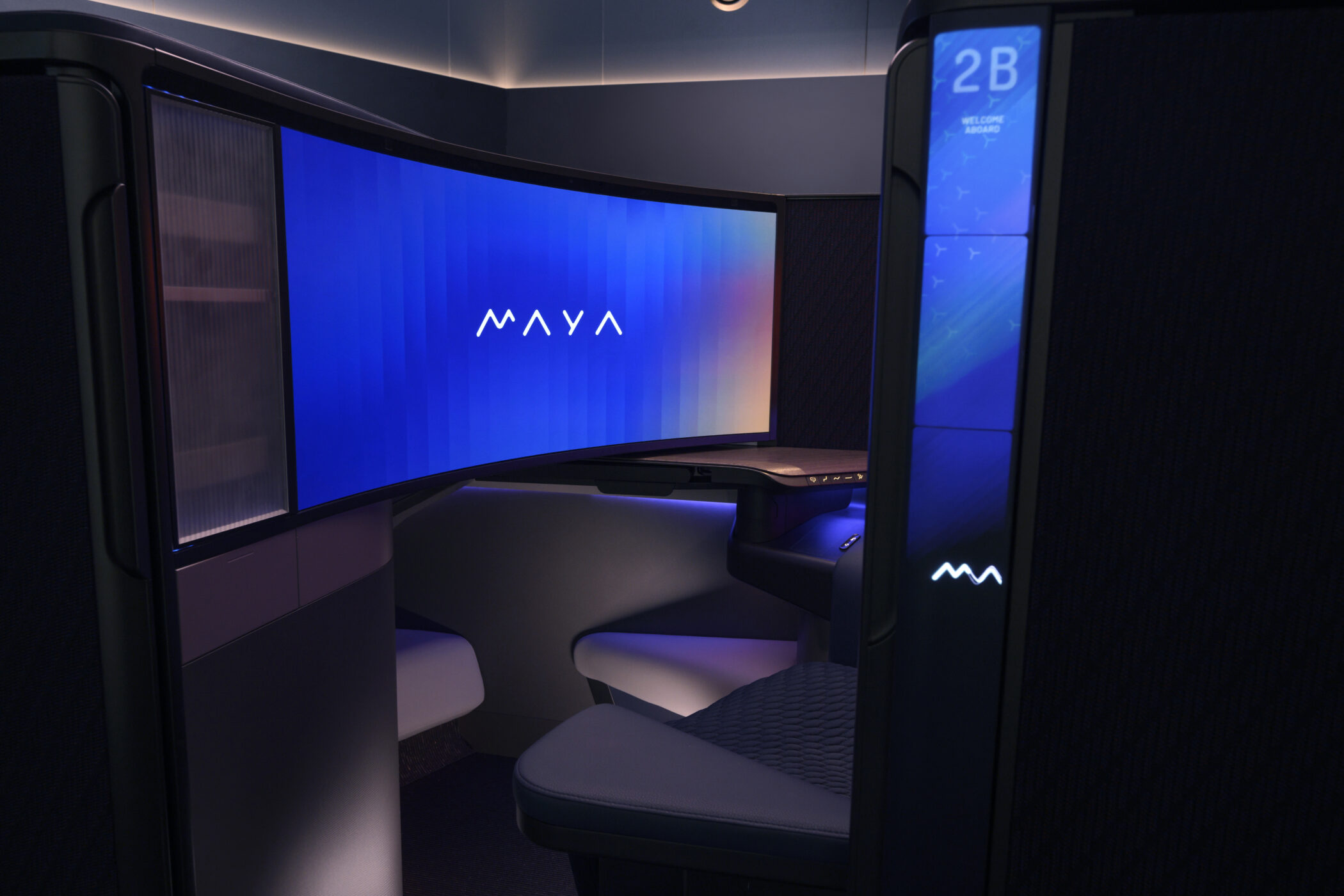 This light spectrum helps regulate the body’s release of melatonin so travellers relax and fall asleep easier, even with the lights on. The enriched spectrum of light also helps the body awaken more naturally, minimising the effects of jet lag upon arrival.
This light spectrum helps regulate the body’s release of melatonin so travellers relax and fall asleep easier, even with the lights on. The enriched spectrum of light also helps the body awaken more naturally, minimising the effects of jet lag upon arrival.
An ultra-wide curved screen display and a headphone-less audio system provide immersive viewing experiences, allowing passengers to see and feel the suite transform around them based on the phase of flight, personal preference or entertainment option.
The integrated AI-smart InteliSence cabin system, meanwhile, responds to passenger behaviour in real-time, delivering comfort, personalisation and service.
Accessibility is powered through Adapt, a flight experience control system that integrates directly with passenger personal electronic devices, providing familiar, curated command over the entire seating environment.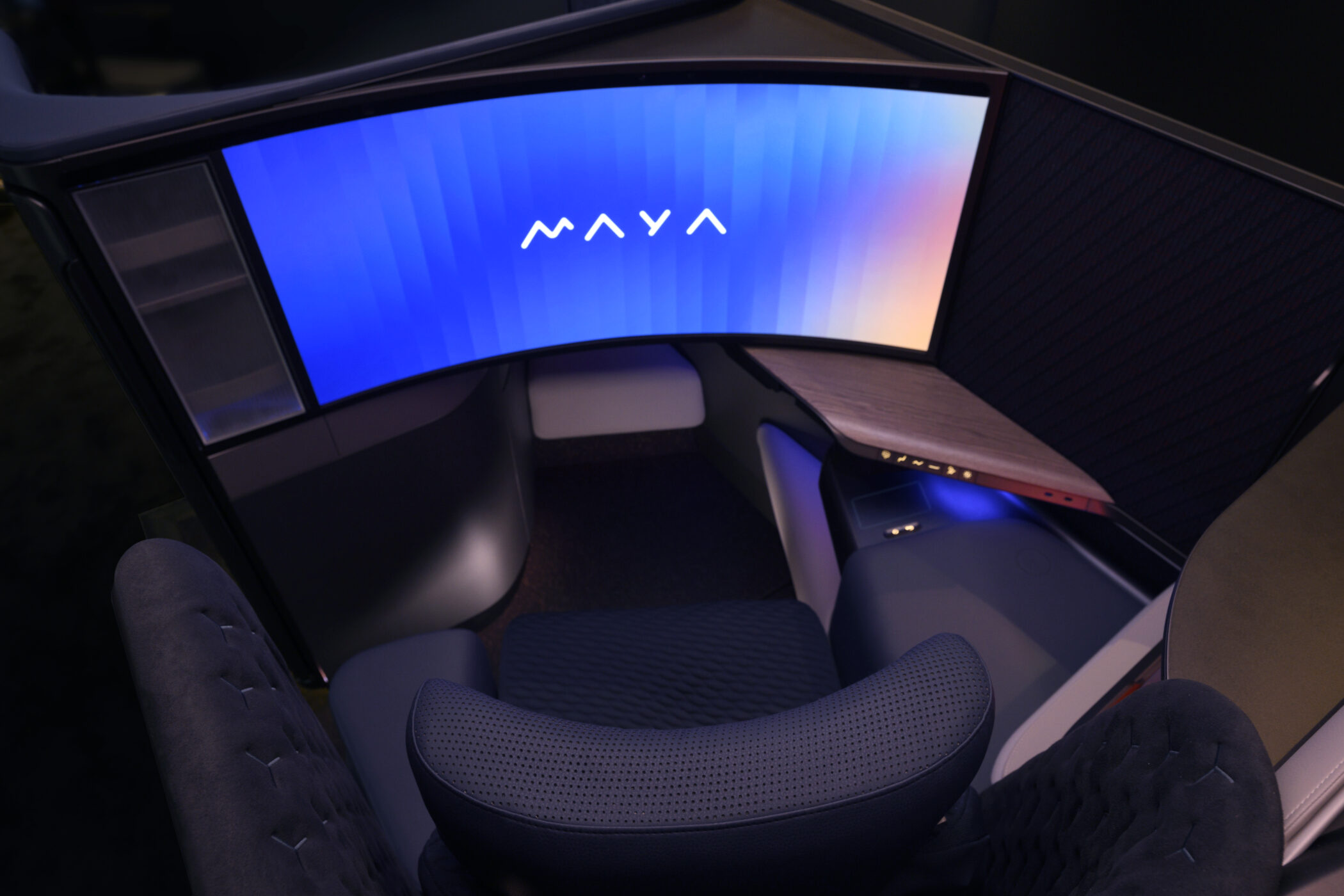 Crew-to-passenger communication also improves as the Adapt system informs service teams of unique passenger needs, allowing crews to cater their approach at an individual level.
Crew-to-passenger communication also improves as the Adapt system informs service teams of unique passenger needs, allowing crews to cater their approach at an individual level.
Maya has been created with recycled, reusable and plant-based materials, combined with advanced machining and 3D knitting processes, to reduce production waste and improve product circularity.
Further sustainability implemented into the intelligent design include operability to reduce waste, power consumption and overall weight.
The industrial design of the seat emphasises modular construction, providing the opportunity to incorporate future technology developments and mid-life upgrades while also providing a canvas for differentiated branding elements.






